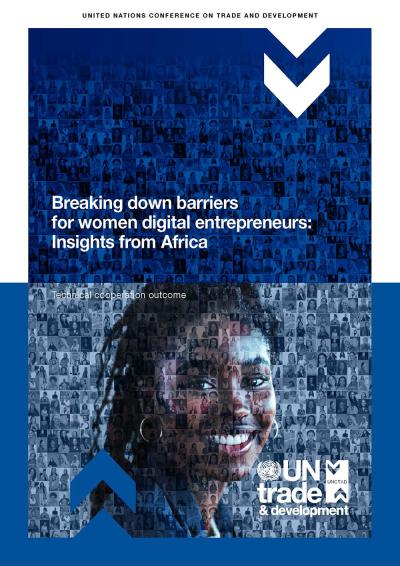
The digital economy is reshaping global trade and business, presenting new opportunities for inclusive growth and sustainable development. However, these opportunities are not equally available, particularly for women entrepreneurs who face significant barriers to full participation.
This report addresses the knowledge gap concerning women digital entrepreneurs in the Global South, utilizing a mixed-methods approach that includes surveys and qualitative interviews from the eTrade for Women network. It emphasizes the diversity of experiences often overlooked.
Women entrepreneurs in sub-Saharan Africa encounter multifaceted challenges rooted in societal norms, including limited digital connectivity, unequal access to financing, skills gaps, and under-representation in leadership. These factors hinder their participation in the digital economy and require coordinated responses within broader ecosystems.
The eTrade for Women initiative aims to foster inclusive digital economies by highlighting structural barriers and showcasing the resilience of women digital entrepreneurs.
This report compiles survey responses from 94 entrepreneurs across various regions and qualitative insights from 33 entrepreneurs in 13 African countries, shedding light on this under-researched segment of the digital economy.
Women in the Global South increasingly turn to digital entrepreneurship for economic empowerment and community impact.
- Chapter 1 explores emerging trends and remaining knowledge gaps, emphasizing the gender digital divide in technology access, business ownership, and finance. Although digital entrepreneurship offers transformative potential, it is often unrealized due to structural barriers.
- Chapter 2 profiles eTrade for Women Community members, highlighting their demographics, motivations, business models, and environments. Despite their ambition, challenges like limited financing—over 80% rely on personal savings—and digital infrastructure issues constrain their growth.
- Chapter 3 focuses on sub-Saharan Africa, noting the difficult business ecosystem shaped by low digital trust and high operational costs. Women face societal expectations to balance multiple roles while striving to create social impact through their enterprises.
- Chapter 4 concludes with a call for strengthened policy support and institutional frameworks to enable entrepreneurs to thrive. It offers recommendations based on interviews with entrepreneurs, including the need for tailored capacity-building and improved access to finance.


